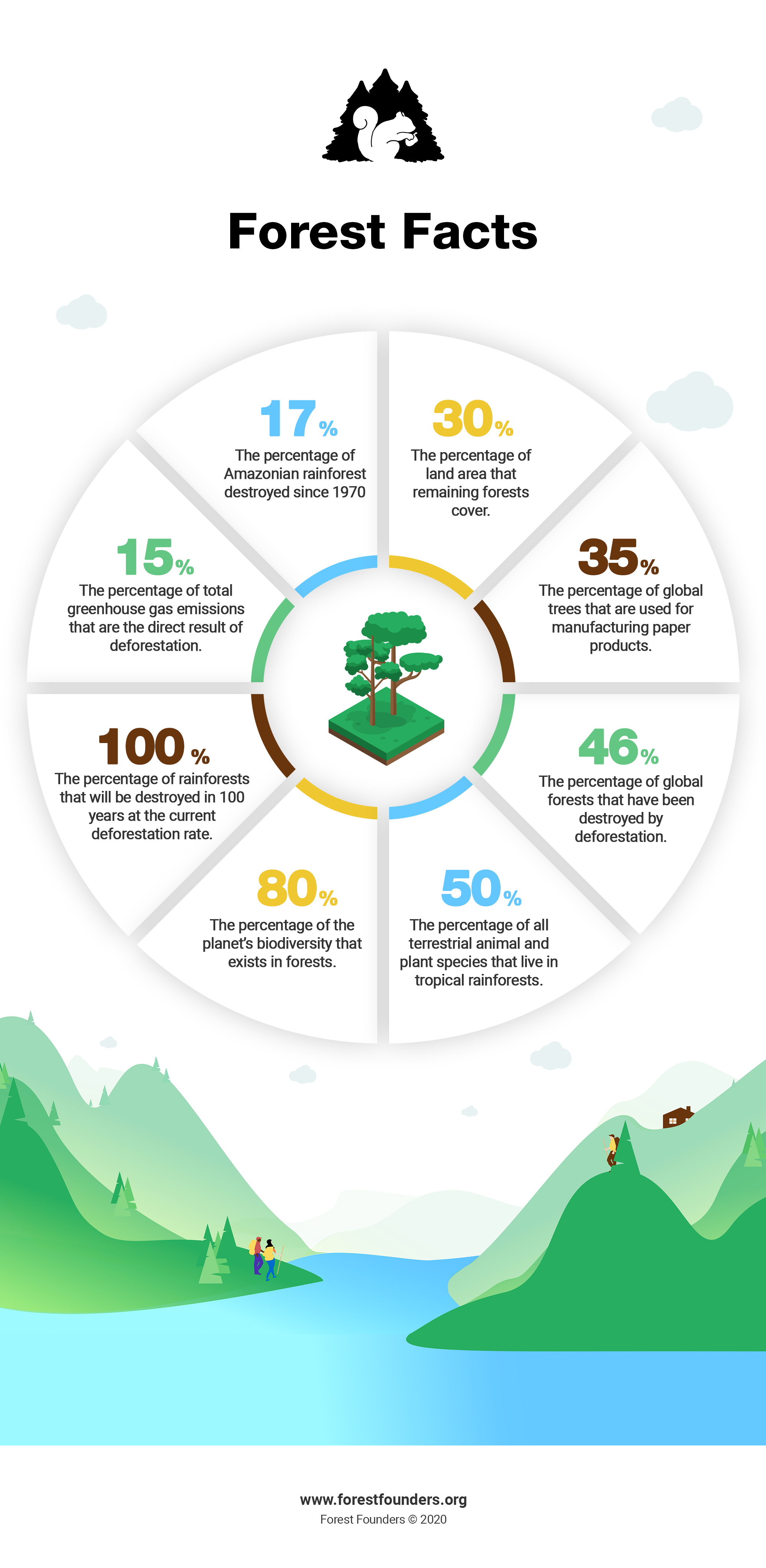While reforestation – tree planting – cannot completely restore forest cover quickly, it nonetheless offers many of the ecological benefits of primary forests.
Why do we need trees?
Trees are essential to the optimal health of the planet and its diverse ecosystem of flora and fauna – they provide oxygen, act as water and air filters, provide a home for incalculable animal species, preserve soil quality, and they’re soldiers on the front line of global warming.
Trees can save us from ourselves – the dynamic and crowded microbial community surrounding tree roots can filter organic and man-made toxic waste. When they’re planted in dense urban environments, they can help to clear out environmental pollutants that worsen asthma.
Here are a few examples of how trees enhance the quality of every essential earthly element.
Trees Clear Air
Trees act similarly to air purifying systems. They attract environmental toxins through their branches and leaves, and expel clear oxygen into the atmosphere. Clusters of trees can act as carbon sinks – natural phenomena like soil and the oceans that pull carbon dioxide from the atmosphere. Even heavily populated urban regions can benefit from tree planting, as trees filter particulates from the air, including smoke, dirt and smog from fuel-burning traffic.
Trees Purify Water
Forests located throughout the U.S. provide drinking water for more than half of the population. The melting snow and rain are protected and purified by forest tree cover. The leaves allow water to absorb into the soil evenly; the roots prevent sediment runoff from contaminating the water supply, and tree cover can recharge groundwater supplies.
In addition to their water filtration capabilities, trees actually regulate rainfall. It has been found that in the Amazon, the trees release such a high concentration of moisture into the atmosphere that they produce their own rain clouds.
Trees can also protect inhabited regions from succumbing to landslides by stabilizing terrain and preventing erosion that leads to flooding and other natural disasters.

Trees Create Biodiversity
Biodiversity is the dynamic configuration of species that play a part in the harmonious functioning of the ecosystem. Maintaining a variety of organisms facilitates the sustainability of each individual species. When that harmony is disturbed, invasive species can take over the environment and jeopardize the survival of other plants and animals. Deforestation is particularly harmful to biodiversity, since the removal of trees can cause entire species of insects and flora to die off, creating a void that may not be filled even through reforestation.
From a human use perspective, having an abundance of species within a biosphere means that there are more resources for our benefit. Approximately 40% of prescription medications around the world contain plant, fungal or animal compounds found in biodiverse regions; maintaining biodiversity ensures that the raw materials gathered from forests for manufacturing essential products are sustained.
Trees Optimize Human Health
Being surrounded by trees can improve wellness, and there are significant emotional benefits to being in forest regions. Trees can reduce anxiety, depression and hostility, as well as elevate mood.
Trees may also benefit cardiovascular health. According to a study published in 2009, walking in a forested area may improve heart function more than walking in an urban neighborhood. Study participants underwent physical tests after walking through a forest reserve on one day and then in a city environment on another. It was found that the forest walk had resulted in greater blood pressure reduction and lower stress hormone levels than the city walk.
Trees Regulate Climate
Trees sequester harmful greenhouse gasses, most notably carbon dioxide, by absorbing them into their leaves, branches and trunks, and releasing oxygen. Trees have been found to reduce urban temperatures by as much as 46 degrees Fahrenheit. With urban population growth expected to increase by 16% in 2050, trees planted in green spaces throughout cities may significantly mitigate the pollution caused by increased vehicle traffic and energy consumption. A single tree is capable of absorbing nearly 50 pounds of CO2 every year.
From elevating happiness, to improving cardiovascular health, to supplying clean air and water, trees deliver incalculable benefits to humankind. They must be protected, at all costs.
Forest Founders: Helping Give Forests a Lifeline
Forest Founders was created to provide an accessible resource to people who want to mitigate their CO2 emissions by reforesting the planet. By becoming a Forest Founders subscriber, each member supports planting eight trees and 20 seed per month, which has the potential to dramatically reduce the average American’s carbon footprint. For more information about how you can participate in Forest Founders’ tree-planting initiative, please visit our information page.